|
Vol. 19, No. 3 Sponsored by:
Tucson, Ariz. -- Greetings MCD members! I can’t believe it’s almost time to pack our bags for the Centennial Meeting of NCA! It’s always one of my favorite times of year, and it will be especially great to head to my hometown, Sweet Home Chicago! Please plan to attend as many MCD sessions as possible, but especially, I call your attention to the MCD’s three “showpiece” events: (1) the business meeting on Friday, November 21, at 9:30 a.m. in Salon A2 - Lower Level at the Hilton Chicago; (2) the "Top Four Papers in Mass Communication" in the same room at 11:00 am; and (3) "Top Four Student Papers in Mass Communication" at 12:30 pm in the same room. As my term as MCD chair comes to close, I would like to thank all of the MCD officers, but especially, I would like to express my gratitude to the members of the MCD Research Committee, particularly: Brent Malin, Meghan Sanders, and Hugh Phillips Curnutt. The Research Committee is the heart and soul of MCD. They have the incredibly daunting task of programming 40 session slots, along with the Vice Chair, Srividya Ramasubramanian. I think you will agree that they did a splendid job this year, and we will enjoy the fruits of this labor in November! Finally, please consider running for an office of MCD. In the last 10 years, I have had the pleasure of serving in most of the positions on the officer roster, and I can say that I have learned so much and met so many in our field through my service to this division. It is a wonderful opportunity to become better connected with the MCD and NCA. I hope you'll consider service to the MCD! See you in Chicago!
Louisville, Ky. -- Want to be more active in the Mass Communication Division of the National Communication Association? Submit your name for nomination!
<<back to top>> Pittsburgh, Penn. -- As part of this year's paper competition, the top three faculty and top four student papers submitted to NCA Chicago will be given prime presentation spots during the 2014 convention. You are encouraged to attend these panels and congratulate these rising and established scholars.
As you are attending NCA Chicago, please take a moment to congratulate these scholars for their scholarship - recognized by their peers as the most representative work for top-notch mass communication research.
<<back to top>>
Morgantown, W. Va. -- As NCA nears with the petition for a Game Studies division under review, NCA games researchers are informally convening online and in-person. First, a Facebook group has formed (https://www.facebook.com/groups/ncagames/) and all members interested in games-related research are welcome to join. The hashtag #ncagames is also being used on Twitter. An in-person meet-up during the Chicago conference is also being planned – it is tentatively set for Friday 11/21 from 5-7pm (location TBD, but likely at a bar near the conference hotels). Please join the Facebook group or email Jaime Banks at jabanks@mail.wvu.edu for more information. <<back to top>> Have a conference or call you'd like to add to The Gatekeeper? Volume 19(3) will be online through to February/March 2015. Send your information to Webmaster Nick Bowman (Nicholas.Bowman@mail.wvu.edu) and we'll get it posted (and shared to Facebook).
Digital games have complicated notions of what a body is and what it means during and apart from play. Both digital and physical bodies are understood to influence – or be influenced by – gameplay experiences according to their unique traits, states, abilities, materialities, and governing systems. In gamespaces, digital bodies may be considered both as signifiers and agents of players’ intention and as independent entities functioning according to their inherent design. On the other side of the interface, physical bodies may be considered both as manipulators of game content and as being influenced by game events that they help create. In many ways, these interplays between digital and physical bodies are central to notions of play. The goal of this pre-conference is to shed light on the natures, functions, and interplays of digital and physical bodies in games, and how bodies are engaged in and influenced by play. “Bodies,” for purposes of this event, are broadly defined, including textual, visual, logical, and physical manifestations of players or their agents. As the main conference theme is “Communication Across the Life Span,” contributors are encouraged to consider gaming bodies as they evolve over stages of life and play. In the interest of fostering lively discussion and synthesis of scholarship, the pre-conference welcomes abstracts for research from various theoretical, methodological, and disciplinary backgrounds. Possible pre-conference topics related to gaming bodies include (but are not restricted to):
Proposals may be submitted to four categories: translational brainstorming questions, research reports, posters, and game demos. Research reports and posters will undergo double-blind review by volunteers, and will be evaluated for a) fit with the pre-conference theme of ‘Gaming Bodies,’ b) quality of theory methods, c) theoretical and/or empirical contributions. Translational questions and game demos will be chosen by the pre-conference committee, after evaluating for theme fit and other criteria outlined below. Submission opportunity 1: Translational brainstorming questions The translational brainstorming session is intended to jump-start the preconference by talking about notions of bodies and why they matter to games and gaming, even for games scholars that do not specifically attend to issues of embodiment. In particular, we will invite three scholars to cooperatively lead a discussion, and each will pose a provocative question to debate. One question will focus on digital bodies, one on physical bodies, and one on the intersections of the two. Anyone interested in posing a question and facilitating its consideration is invited to submit a ~500-word abstract that includes the following: a) the question to be posed; b) the rationale for posing that question; and c) anticipated discussion outcomes. The submission should also indicate which of the three categories the question should be programmed as addressing (the physical body, the digital body, intersections of digital and physical bodies). These submissions do not need to be blinded for review. Submission opportunity 2: Research report (extended abstract) The research report sessions will be traditional paper sessions, programmed into one of three tentative themes: the physical body, the digital body, intersections of digital and physical bodies. Note that these themes may shift, depending on the nature of submitted/accepted abstracts. These submission should be blinded for review. Submission opportunity 3: Research report (poster) Anyone interested in presenting a poster at the pre-conference is invited to submit in one of two formats:
Submission opportunity 4: Game demo The purpose of the game demonstrations is to experience and reflect on the many ways that digital and physical bodies are engaged in gameplay. Game demonstrations should include a live, playable game, and demonstrators should be prepared to offer a thesis about how bodies are engaged in the game and why that engagement matters, to answer questions about that thesis, and to offer assistance with gameplay. All game genres, platforms, and subject matter are welcomed, so long as the ‘Gaming Bodies’ theme is addressed. Anyone interested in demonstrating a game is invited to submit a ~500-word abstract that includes the following: a) the name of game to be demonstrated, and a brief description of gameplay and aesthetic b) a statement of the themed thesis and supporting points, and c) anticipated outcomes of the demonstration. Demonstrators should be prepared to bring, set up, and monitor their own game(s) and device(s). These submissions do not need to be blinded for review. Submission details: To submit, please e-mail a PDF of your submission as an attachment to Jaime Banks at jabanks@mail.wvu.edu. All submissions must be received by 11:59pm Eastern U.S. time (GMT-5:00) on December 1, 2014. The abstracts/posters will be subject to a double blind peer review process, therefore all identifying author information should be removed from the submission content and properties. When submitting an abstract or poster proposal, please also include a separate cover page including your name(s), department/organization(s), and e-mail address(es). The translation questions and game demo proposals will be chosen by the pre-conference committee and do not require removal of identifying information. Notification of acceptance will be sent by February 1, 2015. The extended abstracts and posters submitted for the pre-conference should not have been submitted to any other competitions in the ICA's main conference or any other venue, nor should they be materially similar to any paper under consideration by any such venue. The pre-conference submissions will be refereed and programmed separately from ICA’s main conference. All those who are accepted to present their extended abstract should register for the ICA pre-conference by March 13, 2015. The registration fee will be $50. A note about location and transportation: Please be aware that this preconference will be held outside of the conference hotels, at a local university campus. In order to address possible concerns about safety of traveling among various locations in San Juan, we have arranged for a shuttle bus to transport attendees from the two conference hotels to the preconference location at a local university. This transportation will be provided for free to registered attendees. Because of this you will need to be at each hotel’s meeting point promptly to catch the shuttle (exact time and location to be announced to registrants). Unfortunately, if you miss the shuttle you will have to arrange for your own cab ride to the campus. Questions? Please direct any questions or concerns to: Jaime Banks, West Virginia University - jabanks@mail.wvu.edu - @amperjay About ICA and the Game Studies Interest Group ICA is an academic association for scholars interested in the study, teaching, and application of all aspects of human and mediated communication. ICA began more than 50 years ago as a small association of U.S. researchers and is now a truly international association with more than 4,500 members in 80 countries. Since 2003, ICA has been officially associated with the United Nations as a non-governmental association (NGO). More information on ICA can be found at www.icahdq.org/. The Game Studies special interest group has been a platform for scholars worldwide specializing in rigorous research on digital games and gaming as a new form of media since 2006. More information on the ICA Game Studies Special Interest Group can be found at http://icagames.org
<<back to top>>
Have a somebody in mind that you'd like to recognize in The Gatekeeper? We'd like to hear from you ... because right now, we don't have anybody to brag about. =( <<back to top>>
University of Connecticut The Department of Communication at the University of Connecticut (UConn) invites applications for Professor and Department Head of the Communication Department. The successful candidate will be appointed at the rank of professor, and will be expected to engage in teaching, research, and service as well serve as leader of this growing academic department. UConn is entering a transformational period of growth supported by the $1.7B Next Generation Connecticut (http://nextgenct.uconn.edu/) and the $1B Bioscience Connecticut (http://biosciencect.uchc.edu/) investments and a bold new Academic Plan: Path to Excellence (http://issuu.com/uconnprovost/docs/academic-plan-single-hi-optimized_1). As part of these initiatives, UConn has hired more than 450 new faculty at all ranks during the past three years. We are pleased to continue these investments by inviting applications for the Head of the Communication Department. We seek candidates who have significant and widespread recognition in the field of Communication. The Communication Department has 16 full time faculty members and 3 Assistant Professors in Residence and Visiting Professors, and has approximately 45 graduate students and 800 undergraduate majors. The University of Connecticut is ranked the best public university in New England, and among the top 20 public universities nationwide. The Communication Department is ranked Number 1 in New England, according to the National Research Council and ranks among the six most research-productive Communication Departments nationally. Applicants are expected to demonstrate effective leadership in a diverse community of faculty colleagues, students, and staff professionals, and to be an articulate and vigorous spokesperson for the department’s scientific and educational missions. The department’s research profile is particularly strong in quantitative analysis of interpersonal communication, mass media, social influence, communication technology, and health communication, but candidates from all emphasis areas are encouraged to apply. Qualifications: Minimum qualifications: The successful candidate for this position will have a Ph.D. in Communication or closely related field (equivalent foreign degrees are acceptable), a proven record of excellence in teaching; a distinguished record of publications and achievements in their research specialty; evidence of strong administrative experience and managerial skills; and a deep commitment to promoting diversity through their academic and research programs. Preferred qualifications for this position include research interests that will strengthen, build or bridge existing programs in Communication. Other preferred qualifications include a record of attracting and mentoring the highest quality faculty; a record of strengthening a graduate program; and of expanding interdisciplinary research activities through research, teaching, and/or public engagement to the diversity and excellence of the learning experience. Appointment Terms: This is a full time, 10-month position with an intended start date of August 23, 2015. Salary will be based on qualifications and experience. To apply, submit via www.jobs.uconn.edu a cover letter, curriculum vitae, teaching statement (including teaching philosophy, teaching experience, commitment to effective learning, concepts for new course development, etc.); research and scholarship statement (innovative concepts that will form the basis of academic career, experience in proposal development, mentorship of graduate students, etc.); statement concerning leadership values and vision; and a commitment to diversity statement (including broadening participation, integrating multicultural experiences in instruction and research and pedagogical techniques to meet the needs of diverse learning styles, etc.). Three letters of reference should be sent to Maryann.Markowski@uconn.edu. Evaluation of applicants will begin immediately and continue until the position is filled. For more information regarding the Department of Communication, please visit the department website at http://communication.uconn.edu.” Please include the search number #2015131 with all correspondence. UConn no longer offers benefits to domestic partners of either sex. However, the State of Connecticut has legalized same-sex marriages; marriage partners can therefore obtain full benefits regardless of their sexual orientation. <<back to top>>
Anderson University Tenure-track position beginning August 2015. The Cinema and Media Arts program is housed in the Department of Communication & Design Arts. We take a hands-on approach to learning and seek a faculty partner who will mentor students. The department seeks an innovative, collaborative colleague to further the entrepreneurial and interdisciplinary aim of the department. The department values a diverse faculty and seeks to create as diverse a pool of candidates as possible. The Cinema and Media Arts program includes a video and film production company and a commercial FM radio station. Student and professional projects have earned recognition regionally and nationally, including multiple regional Emmy® awards. Expectations include but are not limited to: teaching courses and developing curriculum at all levels; advising students majoring in cinema and media arts; fulfilling department, university and community service; and participating in creative and professional activities in the field. Qualifications: Ph.D. required, although candidates who are ABD with a firm completion date will be considered; a blend of industry and academic experience is preferable; teaching experience in both introductory and advanced level courses; and knowledge of producing and management, visual editing, screenwriting, and sound design. Anderson University is a comprehensive institution with a strong liberal arts tradition; affiliated with the Church of God. We are seeking faculty who possess a maturing Christian faith and are committed to the mission of Christian higher education. <<back to top>>
Anderson University Tenure-track position beginning August 2015. Design (Visual Communication Design) program housed in the Department of Communication & Design Arts. Expectations include but are not limited to: teaching courses and developing curriculum at all levels of graphic design; advising students majoring in design; fulfilling department, university and community service; and participating in creative and professional activities in the field. The department seeks a collaborative colleague to further the entrepreneurial and interdisciplinary aim of the department. The department values a diverse faculty and seeks to create as diverse a pool of candidates as possible. Qualifications: Masters in Fine Arts (MFA) or equivalent degree with focus in graphic design; a minimum of five years of professional experience in design; teaching experience in both introductory and advanced level courses; and thorough knowledge of the graphic design field (print and web) including graphics software expertise (e.g. Adobe Creative Suite). Anderson University is a comprehensive institution with a strong liberal arts tradition; affiliated with the Church of God. We are seeking faculty who possess a maturing Christian faith and are committed to the mission of Christian higher education. <<back to top>>
Florida State University The School of Communication at Florida State University is seeking a full-time, tenure-track Assistant Professor whose research focuses on the role of communication in improving health and well-being over the human lifespan. The person filling the position will have the opportunity to work with a group of faculty members across the university who conduct research as affiliates of the Institute for Successful Longevity (http://isl.fsu.edu). The Institute is dedicated to interdisciplinary research on healthy physical and cognitive aging that can discover causes of age-related functional and cognitive decline and develop effective interventions that counter it. Individuals with research interests in health communication or media effects related to the Institute’s mission, as well as social media or technology for health care and/or multicultural communication issues in health care are especially encouraged to apply. The faculty in the School of Communication support the Institute’s initiatives through research and creative scholarship encouraging individuals to be healthy, connected, and informed across their lifespan. This work falls under four broad areas: communication in the public interest, strategic communication, media and technology, and multicultural/intercultural/international communication. The ideal candidate will build on our work in one or more of these areas, share a commitment to socially relevant scholarship, and engage in interdisciplinary collaboration. A completed Ph.D. in communication or a related discipline is required by the start of the appointment. Competitive applicants will have a demonstrated record of scholarly publication, experience with seeking and strong potential for procuring external funding for research, and evidence of effective teaching. The person filling the position will be expected to teach in the undergraduate and graduate programs within the School, serve on School, College, and University committees, and advise students. More information about the School and its programs can be found here: http://comm.cci.fsu.edu. Applications must include (1) a letter of interest detailing research and teaching interests, (2) an up-to-date curriculum vitae, and (3) contact information for at least three academic references. Application materials must be submitted via http://jobs.fsu.edu/ (Job # 38081). Review of applications will begin on Dec. 1, 2014, with a starting date for the position in August 2015. Please direct all inquiries about the position to Dr. Laura M. Arpan, Professor, Search Committee Chair, School of Communication, Florida State University, larpan@fsu.edu; 850.645.4693. Florida State University is an equal employment opportunity employer. <<back to top>>
Norfolk State University POSITION: The AEJMC accredited Mass Communications and Journalism Department of Norfolk State University is seeking applicants for a nine-month, full-time, tenure-track faculty position at the rank of assistant professor. The position is for teaching undergraduate and graduate courses in Public Relations, Advertising, Media Sales, Strategic and Crises Communications, Society and Mass Communications, Mass Media Research and advising the department PRSSA Chapter. RESPONSIBILITIES: Responsibilities include teaching a 9-12 hour course QUALIFICATIONS: Ph.D. in a relevant field, bona-fide professional public relations and advertising media experience along with strong teaching, research and scholarship credentials. Familiarization with AEJMC accreditation standards and procedures is desired. SALARY: Commensurate and competitive with qualifications regarding professional media, teaching and research experience. EFFECTIVE DATE: August 15, 2015 or until filled APPLICATION DEADLINE: February 1, 2015 or until closed APPLICATION PROCEDURE: Candidates should send a letter of application, current curriculum vitae, official transcripts of both undergraduate and graduate course work and three current letters of recommendation by above date(s) to: Dr. Wanda Brockington, Chairperson of the Department of Mass Communications and Journalism, at the above address. (NCA Convention Contact Dr. Stan Tickton) Individuals with disabilities and requiring accommodation in the application process should call the Compliance/Affirmative Action Office at (757) 823-9159 (Voice) (757) 823-2876 (TDD) by February 1, 2015 An Affirmative Action/Equal Opportunity University <<back to top>>
NCA's RFP Tracker identifies funding opportunities (including research grants, residential fellowships, travel funds, awards, etc.) for communication scholars. There are many grant opportunities for those interested in mass communication research. The RFP Tracker lists funding and fellowship opportunities for graduate students, post-docs, faculty, and people outside of the academy. Check out the RFP Tracker website at http://www.natcom.org/index.asp?bid=10977 and download the most recent report. <<back to top>>
Julie Driver of the National Communication Association main office is looking for MCD members interested in serving as Subject Matter Experts to be contacted by news media organizations. If you are interested in this opportunity, please e-mail Julie (jdriver@natcom.org) with the following information:
<<back to top>>
| ||||||||||||||||||||||||||||||||||||||||||||||||||||||||||||||||
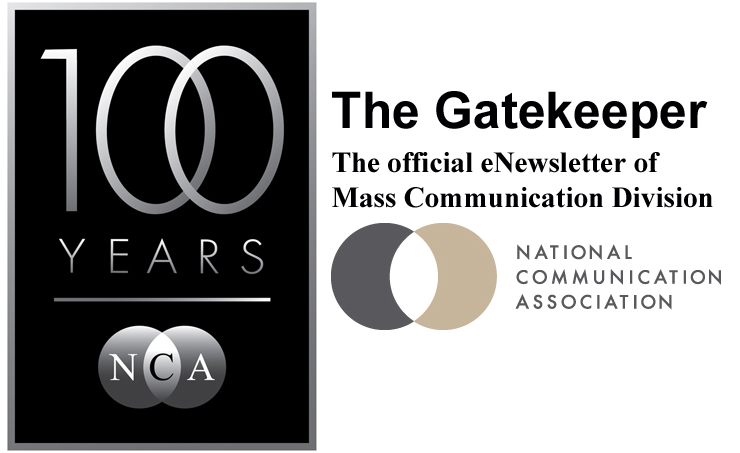
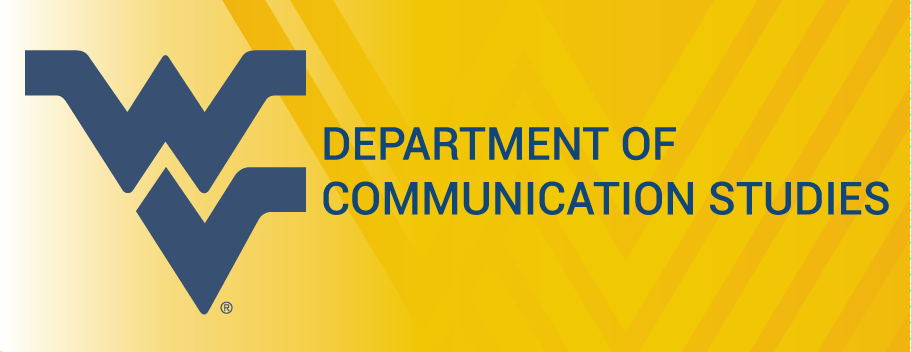

/FB.jpg)

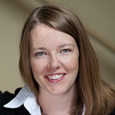
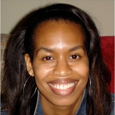 Committee Chair (expires '15)
Committee Chair (expires '15)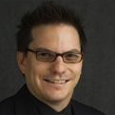 Chair ('14)
Chair ('14)/ICA_GSIG.jpg)
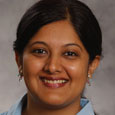
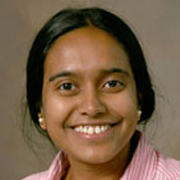
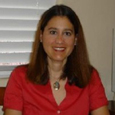 Past Chair
Past Chair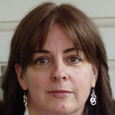 Secretary
Secretary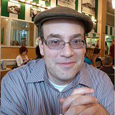 Secretary-Elect
Secretary-Elect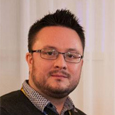 Publications & Web Editor (expires '15)
Publications & Web Editor (expires '15)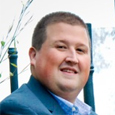 Graduate Student Rep.
Graduate Student Rep.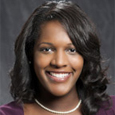 Vice-Chair ('15)
Vice-Chair ('15) Vice-Chair Elect ('16)
Vice-Chair Elect ('16)/Durbin.jpg) Second Vice Chair-Elect
Second Vice Chair-Elect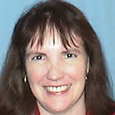 Committee Committee (expires '14)
Committee Committee (expires '14) Nominations Committee (expires '14)
Nominations Committee (expires '14)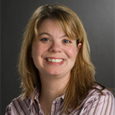 Nominations Committee (expires '14)
Nominations Committee (expires '14)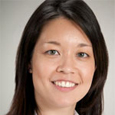 Nominations Committee (expires '15)
Nominations Committee (expires '15)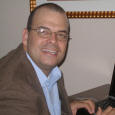
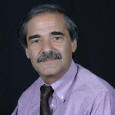
/Tilton(115).jpg) Legislative Assembly
Legislative Assembly